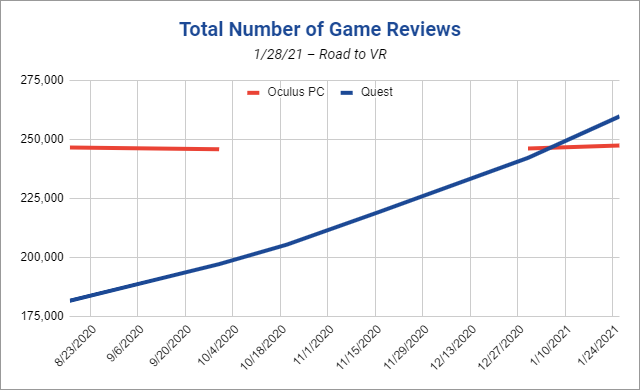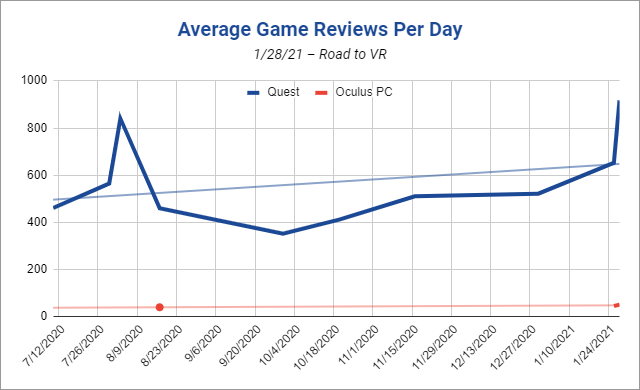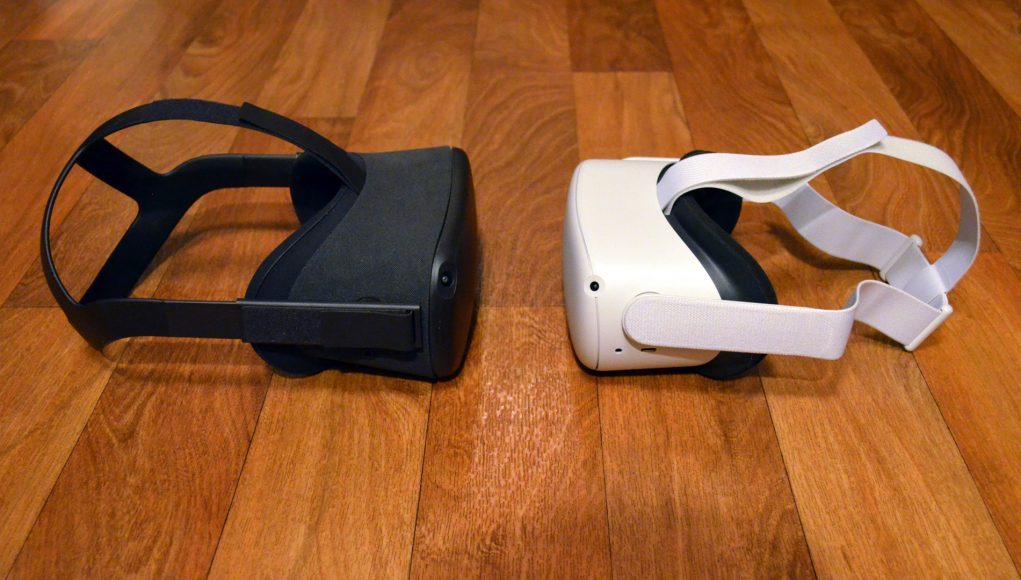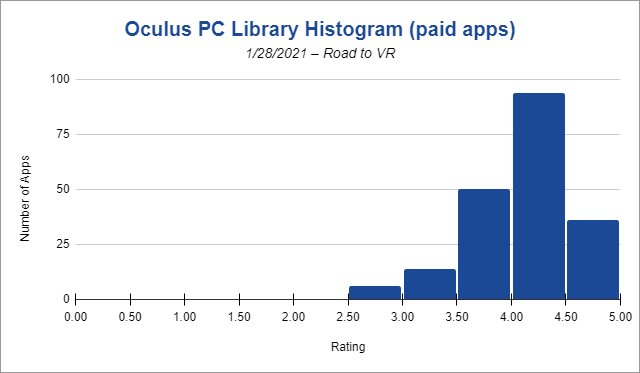Adding to a growing number of data points showing why Facebook has shifted its attention away from Oculus PC is the difference in momentum between the two platforms as revealed by game review counts over time. This month, the number of reviews across all Quest games has exceeded the number of reviews across all Oculus PC games.
The number of times a game has been reviewed generally correlates with how many units that game has sold. Thus, looking at the count of all reviews in a given game marketplace over time can give us some indication of the trend of unit sales in that marketplace.
Worth noting: when it comes to Quest, users are required to install the Oculus smartphone app, which has a variety of mechanisms to pull users back into the app—like scoreboard and challenge prompts—where they can also write a review for games in their library. On the other hand, the Oculus PC app doesn’t have much of that functionality, nor is it always in your pocket.
So, all things equal, we’d expect from the outset that a larger proportion of Quest users would write reviews compared to Oculus PC users. Exactly how many more, however, is hard to figure. So while it’s interesting to see that this month the total number of Quest game reviews surpassed the total number of Oculus PC game reviews, as we can see below, it isn’t the count that’s particularly interesting, but the trend.
 The Rift and the Oculus PC store launched in March 2016, nearly five years ago. The first Quest and its store launched in May of 2019. It took a little less than two years (from May 2019 to January 2021) for Quest game reviews to surpass the number of Oculus PC game reviews.
The Rift and the Oculus PC store launched in March 2016, nearly five years ago. The first Quest and its store launched in May of 2019. It took a little less than two years (from May 2019 to January 2021) for Quest game reviews to surpass the number of Oculus PC game reviews.
Another way to look at this is to look at the average number of reviews per day. Here we can see that not only the count, but more importantly the trend is moving healthily upward on Quest, whereas the Oculus PC store has largely flatlined in comparison.
 Another interesting point to note is that the number of Quest game reviews is spread across a much smaller number of games. The Quest store has just 253 games, while the Oculus PC store has some 1,800. This is no doubt due to Facebook’s decision to “curate” the Quest store.
Another interesting point to note is that the number of Quest game reviews is spread across a much smaller number of games. The Quest store has just 253 games, while the Oculus PC store has some 1,800. This is no doubt due to Facebook’s decision to “curate” the Quest store.
Despite the large quantity of games on the Oculus PC store, only 339 (19%) have reached the seemingly low bar of 100 or more reviews. The median number of reviews for each game on the store is 240.
Quest games are much more consistently surpassing 100 reviews, with 201 (79%) crossing the threshold. The median number of reviews for each game on the Quest store is 621.
Value—as revealed through user reviews—is another interesting point of comparison between the two stores. Below we can see that the rating distribution leans significantly higher on the Quest store vs. Oculus PC.
And a final note worth pointing out: while this data suggests that the Oculus PC store is stagnating, we can’t necessarily extend this conclusion to the overall PC VR category, where Steam is one of PC VR’s largest marketplaces (and is not represented in this data). On that front, Valve shared some positive figures about VR usage on Steam in 2020, and other data suggests the platforms continues to grow.









